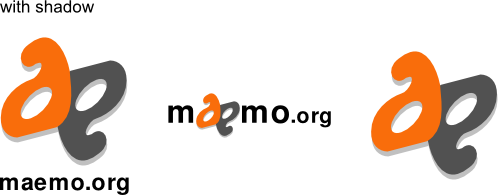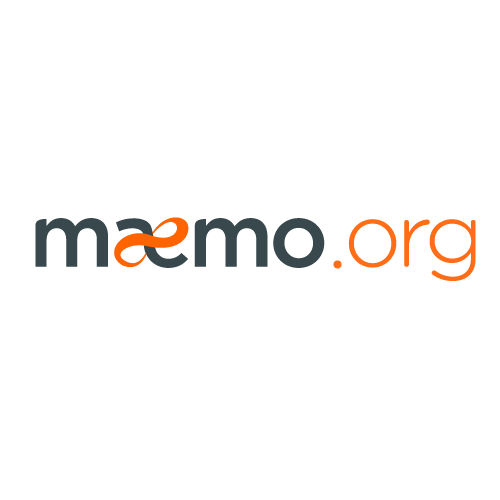July 5, 2008
gnome, guadec, running
1 Comment
So when’s the Malt Appreciation Society meeting this year? I have a bottle of cask strength 12yo Glengoyne I picked up today & was planning to bring along – no idea if it’s any good. So… when do I get to find out???
Also, anyone interested in going for an early morning run (not the day after the Malt Appreciation Society meeting) drop me a line, especially if you’re in or near the Golden Horn Sirkeci… we can do some early morning tourism at about 12km/h.
July 4, 2008
gnome
1 Comment
I rebooted my computer and went out for lunch with some friends. When I came back, it was particularly unresponsive, so I went hunting, and top showed me this:
19055 root 20 0 1343m 453m 1524 D 0.3 45.3 1:46.13 rsvg-convert
A quick ps…
dneary@sligo:~$ ps -ef | grep 19055
root 19055 19054 0 12:25 ? 00:01:45
/usr/bin/rsvg-convert -o /var/log/bootchart/hardy-20080704-1.png
/var/log/bootchart/bootchart.svgz
Ouch!
Does bootchart run until you log in? Is this normal behaviour? 1.3G of virtual memory is an awful lot…
July 4, 2008
General
4 Comments
For anyone who has experienced pain when upgrading to a more recent version of Ubuntu with X and xrandr on Intel hardware, consider running this fabulous command.
This goes in particular for anyone who needed i915resolution before for wide-screens, and had a “ForceBIOS” option in xorg.conf. The driver to use for the hardware changed, and the xorg.conf got about 100 times smaller since Ubuntu 6.06 or 7.04.
This is the major weakness in the Ubuntu upgrade process, really… if hacks are needed to work around falings in previous versions, those hacks are (silently, IIRC) kept after an upgrade, even though they’re no longer necessary (and are, in fact, harmful).
Many thanks once again to Claude Paroz, wo helped me work through the projector problem & got me moving towards the fix.
July 3, 2008
francais, freesoftware, gnome, guadec, marketing
No Comments
I’m coming to the end of my two days in Mont de Marsan (and, as it happens, to the end of the charge in my laptop battery). I think the GNOME Accessibility presentation I gave went very well, certainly people seemed to get a lot from it. I’ll put my slides online at some stage (before the weekend), and I was filmed, when I have a link to the video I’ll throw that up too.
As usual, the great thing about conferences is meeting old friends, and making new ones, and there are a lot of familiar faces around.
One thing that did come out of my presentation is the need for those storyboards I proposed a while back. In particular, I tripped up when demoing Orca (no real plan to show off its functionality, other than turning on TTS, and “doing stuff”, then turning on magnification, and “doing stuff”, etc…), Dasher (it’d be handy to have a few phrases to type rather than coming up with something on the spot), and sticky & slow keys.
I hit a few problems with the keyboard a11y. When I had both sticky & slow keys activated, I got double letters (I’m sure it was a configuration issue, but anyway…). And when I used the keyboard shortcut to navigate to the top bar, I hit two bugs – if I open a menu in the top menubar, I can’t navigate away with the keyboard (Ctrl-Alt-Tab doesn’t work any more), and I can’t navigate to the notification area with the keyboard. And I got some comments on MouseTweaks (“we need a way to temporarily disable it for times when you’re reading a document or a web page, for example”) and Dasher (“not really suitable for certain classes of users” – I’ll try to get more information).
Yesterday’s presentation “Building bridges” went less well – it was a dry run for my GUADEC presentation, and I’ve taken away 3 or 4 good ideas for improvements. But like all the English presentations here, attendance was poor – I have about 10 or 12 attendees. And at 9am this morning, there was one person who turned up for my presentation in English on accessibility in GNOME – lucky enough, since when I tested my laptop with the projector, I had a bunch of problems! Many thanks to Claude Paroz, who helped me identify the problem (old driver + options which were necessary in Ubuntu 6.06 and 7.04, but have since been deprecated) and the solution (dpkg-reconfigure xserver-xorg). My laptop works with projectors! Yay!
June 30, 2008
gnome, marketing
No Comments
This week, I will be travelling to Mont de Marsan, near Bordeaux, Agen, Bayonne and Pau (or let’s say, equally far away from all of those) to give a few presentations, meet a few friends, have a few drinks, and hopefully survive a 9am presentation slot on Thursday morning.
My three presentations (really, two, but they’re taking advantage of my bilinguality) are:
- Bridges between projects : 16:45 on Wednesday. A dry run for my GUADEC presentation, presenting a variety of ways that different projects are co-ordinating, and what we’re talking about, that most people don’t know about.
- Digital Ramps and Handrails: 9:00 on Thursday (in English), and 11:45 on Thursday (in French). It’s with some trepidation that I proposed a presentation on GNOME usability for the conference, since I’m by no means an expert. But I feel that we’ve done such good work in this area, and I’m so impressed with the passion of the accessibility team, that I felt that we definitely needed to talk about it more, so I’ll take my chances. I plan to give a low level overview of the accessibility tools built into GNOME, including keyboard shortcuts, accessible themes, audio events, sticky keys, slow keys, mousetweaks, alternative input methods (Dasher, on-screen keyboard), and of course a short description of Orca and our support for screen readers and GNOME Magnifier. I’ll also mention the surprising side-effects of having an accessible desktop – graphics application test frameworks Dogtail, LTSP and Accerciser. When I get to talking about AT-SPI, that’s where I get nervous, because I’ve had some trouble with gok in the past where my keyboard got disabled when I launched it… I’m going to avoid demoing gok.
Did I miss anything important? Please let me know if you saw anything braindead that I should talk about that I haven’t yet.
Unfortunately, I can’t really afford to travel for the full week, so I’m heading off tomorrow afternoon (Tuesday), eating with friends in Bordeaux tomorrow evening, and spending Wednesday and Thursday at the conference, before heading off again Thursday evening.
If anyone else overlaps and would like to meet up Wednesday evening, drop me a line!
June 29, 2008
gnome, guadec
5 Comments
I got a definitive answer today from the Golden Horn in SultanahmetSirkeci as to why I hadn’t yet received a confirmation of my reservation: I don’t have a reservation.
I have contacted the hotel by phone, filled in the online form, and following instructions, patiently awaited a confirmation, which never came. At that stage, after waiting perhaps a little too long, I tried the hotel again (the person I talked to didn’t know anything about the group code, the online reservation system, and to be honest, didn’t speak English very well), and asked Baris to look into it. Which he did. And got confirmation yesterday that myself and at least one other person who had registered online did not have reservations.
So if, like me, you reserved online at the Golden Horn SultanahmetSirkeci, and like me, you have not yet received any confirmation of your booking, then like me, you’ll need to find another hotel. Bummer.
Update: Baris informs me that the Golden Horn in Sirkeci has made more rooms available under the group code, so there’s hope for me yet.
June 28, 2008
gnome, guadec
No Comments
It’s with great disappointment that I just found out that Eric Sink is cancelling his GUADEC keynote. Eric’s been told by his doctors not to take the trip for health reasons, and while I’m disappointed (I was really looking forward to his keynote), I can of course understand his decision, and I wish him a full & speedy recovery.
I only just found out, and let Baris and the programme committee know, so I don’t know yet what we’re going to do given Eric’s cancellation. I’ll keep you all posted, of course, when I know more.
June 26, 2008
maemo
1 Comment
The maemo.org logo competition is going strong, and we now have many dozens of logo contest submissions.
Some of my favourites so far:
The very first one, Attila’s butterfly

Jussi’s first effort – particularly with just the A and the E:

And Jussi’s second entry, with the Möbius strip. You can see the evolution of this idea, and his collaboration with Thiercito, on the latter’s talk page, which provided some insights into the creative process for me. It’d have been nice if he had trimmed some excess whitespace off the images, mind:

Think you can do better than these or other entries? There’s still lots of time left to get your entries in before the deadline! We’ll be announcing the selection process over the next week or two once the last details are sorted out.
June 25, 2008
gnome, maemo
6 Comments
With the recent discussion in blogs around the GNOME world, it can be easy to forget that there have been some great new applications for GNOME appearing recently. Many of these are written by a new breed of GNOME developer, young students with none of the weight of history sitting on their shoulders, and they are great!
If you haven’t tried them yet, then you should. Most of these aren’t in the GNOME desktop suite, and could probably do with some more exposure.
Here’s a few that came to mind without me having to think too long:
- GNOME Do: This is an amazing application! Its plug-in system is what makes it really great – add all music by an artist to your Rhythmbox playlist, tweet that you’re at your computer, send an IM to a contact, all with just a few keystrokes
- Hamster: I discovered this app recently, and have been very impressed. A plug-in for GNOME Do, and it’d be perfect 😉
- Tasque: For the GTD wannabe that I am.A clean, small app to handle TODO lists.
- Cheese!: Now that this is in the desktop, I guess everyone knows about it. A PhotoBooth clone with an authorwith a sense of humour – especially on April 1st.
- Vagalume: My absolute favourite Last FM client.
- Pimlico: A mobile suite of applications. I tried out Dates and Contacts on my N810, and was very impressed. Everything I personally want in a PIM – simple, functional, intuitive, beautiful.
- Transmission: After using the old GNOME bittorrent client for so long, I was really happy to see someone put the work into making a sensible BT client for GNOME, and Transmission is it. Bravo.
Some of these apps have come from people working in companies like Igalia, Opened Hand and Novell, some of them from students, some of them from hack weeks, all of them have some things in common – a sense of aesthetics and attention to the user experience, lightweight user interfaces ruthlessly focussed on a core usecase. And all serve their users well.
Another thing that many of them share is a sense of humour – when using Hamster or Cheese, you can’t help but feel that the author was having a ball.
Nothing in particular set me writing this, I just wanted to point out that there are many new applications aimed at the end user coming out of GNOME, humour and creativity still live here.
June 16, 2008
freesoftware, maemo
10 Comments
“We all have some learning to do” – that was the core message of Ari Jaaksi’s presentation, which has turned into a massive shitstorm over the past few days.
Yet again, I’m amazed at a knee-jerk populist reaction to a news story, and completely stunned at the spin which has been given to this, and swallowed hook, line & sinker by a large group of supposedly intelligent people. It’s been going on for years, so perhaps one more time shouldn’t surprise me, but it does.
For the benefit of those living in a burrow, here’s the quote that started it all:
“We want to educate open-source developers,” said Jaaksi, who is Nokia’s vice president of software and heads up the Finnish handset manufacturer’s open-source operations. “There are certain business rules [developers] need to obey, such as DRM, IPR [intellectual property rights], SIM locks and subsidised business models.”
That’s the bit, since quoted without context, from an article which included the quote with little context in the first place. Look a little further, and you will see that this is the same message that Dr. Jaaksi delivered in San Francisco a few months ago: Nokia is learning how to interact with free software projects, but if free software developers want the software to be adopted further in mass-market products, then we need to understand the constraints that businesses work under, and address them.
In my mind, that’s a big “if”. Companies work under a bunch of constraints which don’t sit well with free software – DRM, the need for differentiation and a competitive edge. But also dealing with sub-contractors and suppliers who have their terms and conditions under which they’re prepared to work.
Some of the most outrageous things I’ve read these past few days:
“No more Nokia for me, I’m buying an iPhone”
Yeah, because Apple are a really free software friendly company.
“If Nokia can’t get the specs for chips from their suppliers, they should just build their own”
Uhmmm… do you really think that Nokia wants to go into competition with every micro-electronics company in the world? How much resources do people think Nokia really has?
Some people think that Nokia should use only free software in all their devices, regardless of the consequences of that (the consequences would be more difficult government validation of your phone with the GSM networks, no operator take-up of the phones, and thus no cheap phones subsidised when you take a subscription, and underpowered and outdated hardware). That may be fine for a user to have as an option if they don’t mind paying hundreds of dollars fora phone that doesn’t do as much as one that they can get for a tenth of the price or less – in fact, the Freerunner is aimed right at that market. It’s a niche market, not a mass market. One day, maybe…
In the meantime, the conclusion I draw from this is that the slashdot crowd aren’t as reasoned as I had hoped, many people who should know better are jumping to conclusions based on news headlines. What ever happened to critical thought?
Free software is great, a momentous gift to the world, but does not provide the answer to all questions. Sometimes, free software will not be the answer. Some sets of constraints will exclude us from the start. The battle is to change the constraints. But you cannot expect a business to lose money to satisfy philosophical arguments. If you’re ever talking to someone and trying to “sell” them free software, your starting point should be: “how will this (make|save) me money?”
Usually that answer will be easy to find – lower R&D costs, licencing fees, support costs you control better by deciding when to buy support, on what terms. But occasionally, there is no argument. There is no way to persuade Microsoft that releasing Office under the GPL would be a money-making move for them – it plainly wouldn’t be.
So if the answer to that question is “it won’t”, then wish them well, perhaps recommend something that will, and move on to another subject.
« Previous Entries Next Entries »


